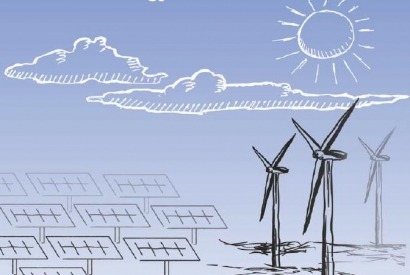
In 2010 global investment in new renewable energy projects exceeded investment in new fossil fuel-fired plants for the first time, largely driven by a mix of renewable energy incentives and political pressure to invest in less emission-intensive energy production. Yet although investments in renewable energy plants are growing, so are the risks. Political/regulatory risk and financial risk are on the rise against a backdrop of macro-economic uncertainty, while weather-related volume risk is rising up the agenda as investments in offshore wind farms accelerate. At the same time, the availability of risk management resources, including risk expertise, industry data and insurance cover—in the renewable energy sector remains limited, potentially restricting the sector’s access to development capital.
The renewable energy sector needs to improve risk management and access alternative sources of capital as operational risks rise and governments cut funding due to the uncertain economic environment. Based on a survey of 284 senior-level renewable energy executives, a new report by the Economist Intelligence Unit (EIU) and sponsored by Swiss Re canvasses the risks in financing, constructing and operating renewable energy projects as well as the risk management challenges that the renewable energy industry must confront.
The EIU report “Managing the risk in renewable energy” shows that the renewable energy sector may face an even more uncertain future if it fails to manage the growing risks associated with larger and more complex projects. Cuts in government expenditures for the sector call into question the sustainability of public financial support for renewable energy developments, especially in Europe. Here, cuts in solar feed-in tariffs range from 15% in Germany to 70% in the UK. Investors in renewable energy worry that some of the other 100 or so governments supporting clean-energy investments will cut this support as part of austerity measures, the report suggests.
Filling the public spending gap
"Additional investments into renewable energy are needed to achieve the transition to a low-carbon economy," says Agostino Galvagni, Chief Executive Officer Swiss Re Corporate Solutions. "Risk management measures such as insurance will be key to encourage further private sector investment."
A major issue in renewable energy projects is their costliness in the early stages. The projects are often capital-intensive and highly leveraged, with up to 70-80% financed through debt. As companies seek to scale up investments, overcoming financial risks is one of the biggest challenges, according to 76% of the survey respondents.
Beyond financial risk, a significant concern for plant investors, owners and operators is political and regulatory risk (62%) while weatherrelated volume risk comes in third for wind power producers (66%). These risks increase further as projects grow in scale and complexity.
However, only 50% of respondents said they are successful at transferring risks, for example through insurance. Many retain the risks related to renewable energy assets on their balance sheets – for instance weather-related volume risk – due to the limited availability of suitable risk transfer mechanisms.
"New technologies and innovation in renewable energy will be the only possibilities left should a global policy regime to reduce carbon emission not materialise," says Andreas Spiegel, Swiss Re's Senior Climate Change Adviser. "This is why Swiss Re is investing a great deal of research to better understand how insurance can mobilise financing for renewable energy projects and identify the most cost-effective ways to reduce risks, such as construction and operational risks as well as risks related to the intermittent nature of renewable energy production."
High demand for insurance products
Some 60% of respondents already use insurance to transfer risks. As the demand for insurance grows, new products, including alternative risk transfer solutions, are starting to appear on the market. The use of solutions such as weather-based financial derivatives is slowly picking up, but still only 4% of wind power producers apply them to their projects. Many solutions on the market today are unsuitable for small-scale projects. Executives say they would transfer more risk if suitable risk transfer products become more widely available in the future, particularly more standardised and cost-effective products.
"We already offer tailored solutions covering production and price risk for hydro power producers," says Juerg Trueb, Head Environmental & Commodity Markets at Swiss Re Corporate Solutions. "We are committed to further expand our product offering so that also investors into wind and solar power projects are able to effectively de-risk their investments.”
A growing number of power companies are placing renewable energy at the centre of their business strategies. Individual projects are becoming increasingly more complex, leading to higher levels of operational risk. Yet, at the same time, macroeconomic uncertainty entails significant financial risk, and political and regulatory risk, as governments cut back on support for renewable energy projects as part of austerity measures. However, while firms have some tools at their disposal to mitigate and transfer risk, availability of these instruments remains restricted—potentially hampering efforts to invest in growth projects. Effective risk management is critical in ensuring that adequate renewable energy projects are developed to mitigate climate change.
The experiences and insights of the survey respondents, and of the renewable power experts interviewed for this paper, point to a number of recommendations for energy companies for which renewable power is becoming a core component of business strategy:
For additional information:

